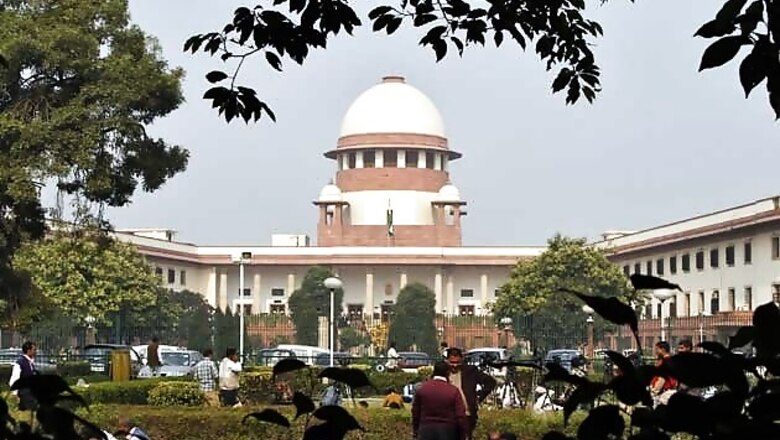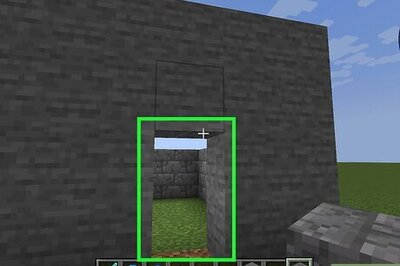
views
New Delhi: Supreme Court will on Friday pronounce its judgement on a batch of pleas challenging the constitutional validity of National Judicial Appointments Commission (NJAC) which brought to an end the two-decade-old collegium system of judges appointing judges in the higher judiciary.
A five-judge bench headed by Justice JS Khehar had reserved its judgement on July 15 after a marathon hearing for 31 days on the issue of validity of the 99th Constitutional amendment and the NJAC Act.
The petitions challenging the new legislation were filed by Supreme Court Advocates on Record Association (SCAORA) and others contending that the new law on the selection and appointment of judges was unconstitutional and aimed at hurting the independence of judiciary.
However, the Centre had defended the introduction of the new law saying that the two-decade-old collegium system where judges appointed judges was not free from defects and got the support of the Supreme Court Bar Association.
The measure was also supported by 20 state governments which ratified the NJAC Act and the constitutional amendment. One of the contentious provisions of the new law was the inclusion of two eminent persons to the NJAC which included Chief Justice of India, two senior most judges of the apex court and the Union Law Minister.
Under the law, two eminent persons will be nominated by a committee consisting of the Chief Justice of India, Prime Minister, and Leader of Opposition in the Lok Sabha or where there is no such LoP, the leader of single largest Opposition Party in the House.
Further, it envisages that of the two eminent persons, one would be from the Scheduled Castes or Scheduled Tribes or OBCs, minority communities or a woman.
The eminent persons shall be nominated for a period of three years and shall not be eligible for re-nomination. The issue of eminent persons on the panel was a major bone of contention between the parties and, on final day of hearing, the bench also comprising justices J Chelameswar, MB Lokur, Kurian Joseph and Adarsh Kumar Goel had differed with the Centre, saying inclusion of laymen in the new system of judicial appointments "cannot work".
Defending the provision for inclusion of two eminent persons, Attorney General Mukul Rohtagi had said, "If we can have laymen in some other Commissions and Tribunals then why not in the six-member NJAC."
Noted jurists like Fali Nariman, Anil Divan and Ram Jethmalani were among prominent senior advocates who had argued against the NJAC replacing the collegium system.




















Comments
0 comment